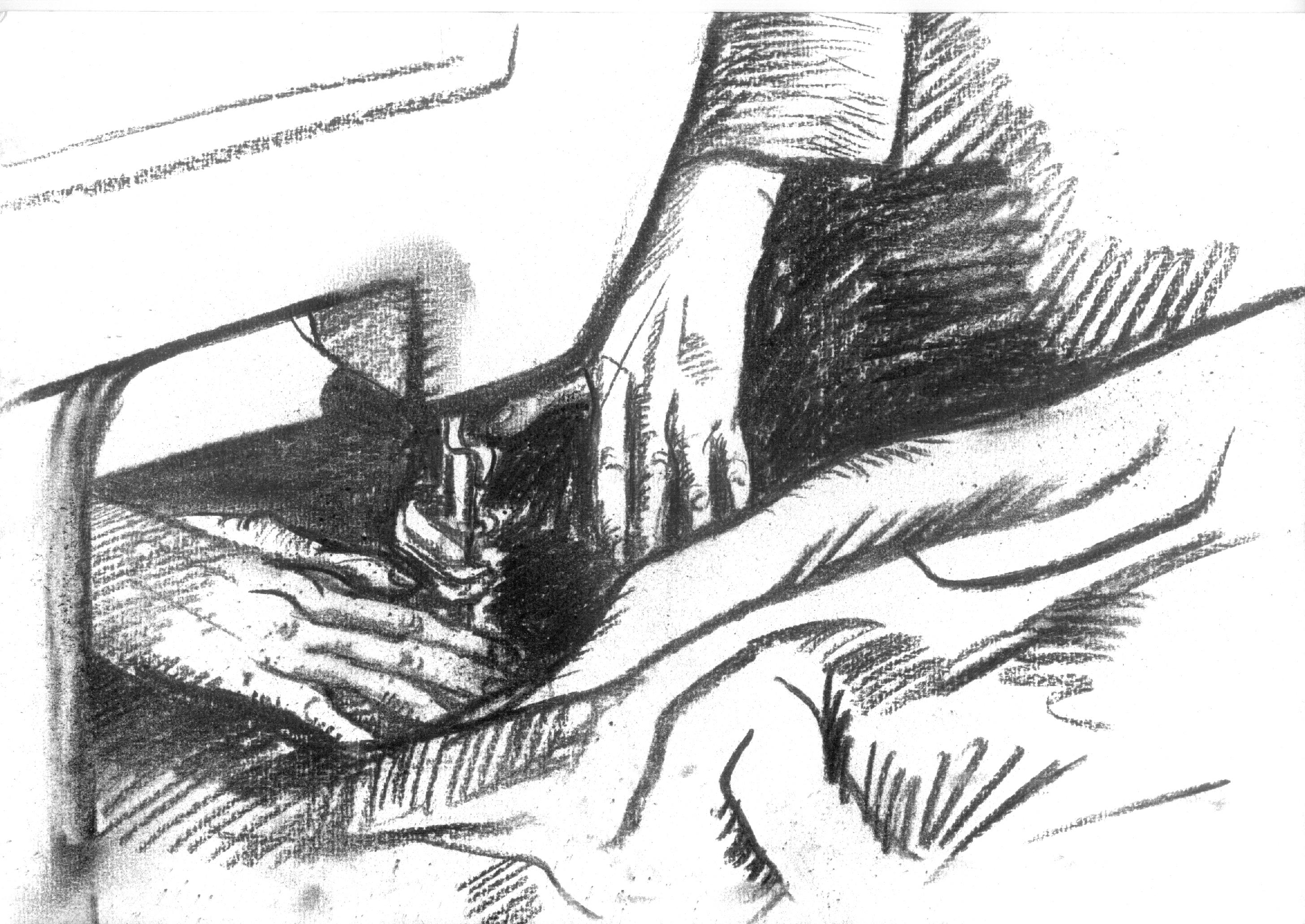Our project began as a seminar with five girls, at which we discussed key words from a quote of the Brazilian educator Paolo Freire. The seminar resulted in a video and a collection of clothes dedicated to these phrases. The clothes were made by the girls, as in the basic principle in most projects by the FNO Shop of Utopian Clothing.
Girls are always sowing something. Or embroidering. Or even just sowing on buttons. By making dress backs and cuffs, they create their own new image, or to be more precise, a form for their own ideal. These seamstresses are very serious: their goal is give form and boundaries to something that is only still showing through as a vague contour, a plump cloud of desires, urges, questions, yearnings, and all the rest – garbage and ideals.
Sasha: Yes, I’m an idealist, but I’m 17 years old, so I’m allowed. I still can’t think any differently. Maybe that isn’t too smart and it isn’t really right, but how else can you live? To get into the daily grind? And then suddenly you’re lost…
Tra-ta-ta: the sowing machine taps away. What shall we use to sew our ideals? This beautiful question, for example: Humanization is affirmed by the yearning of the oppressed for freedom, justice, and love and by their struggle to recover their lost dignity
The girls like the quote; they are ready to put their signature under every single word. What do these words mean? Maybe they are just tra-ta-ta-ta? Maybe the girls like this stuff because it flows as easily as a freshly placed seam? But if we stop and think about it, these words might actually take on a different meaning, one that concerns us personally.
HUMANISM
Dasha: I think that humanism is when a person can and wants to show her or his goodness by doing good deeds and helping other people…
Sasha: It’s when you stop seeing all the others as a mass. I’m surrounded by personalities just like me, or something even grander, who knows. But when you see the others as a faceless mass, it only leads to individualism; you can’t pity others because you’re so caught up in yourself.
Galka: Oh my…that’s all very high…Humanism, Shmumanism…
FREEDOM
Galka: So what’ll it be, “freedom” or “the oppressed”?
Dasha: “Freedom”! That’s much nicer…than “the oppressed”
Olga: Freedom for something or freedom from something? That’s important too.
Dasha: And what do you think, is there such a thing as absolute freedom?
Galka: There’s no such thing as absolute freedom! Even if we are one, we’re still not free…
Anya: This is why society weighs so heavy on me…; loneliness weighs heavy…
Olga: Any person’s freedom depends on where the other person’s freedom begins…
THE OPPRESSED
Anya: So what do “the oppressed” mean to you?
Dasha: Those who have no freedom. Slaves.
Olga: If a person is oppressed, she or he is not a person, but almost a thing.
JUSTICE
Galya: Oh my, justice!…Justice…
Olya: Everyone understands this in their own way, I guess…but there’s some kind of set of principles, not principles…more like a life position according to which we probably judge actions, because in fact we’re judging other people, even we don’t want to, but it’s impossible not to, basically…I think I’m lost, to be honest…
Dasha: There’s this phrase – to each according to his ability. I think that’s justice.
LOVE
Sasha: I used to think that the meaning of life was love, but later I understood that it might actually not be. Then again, I love my friends so much that I’m not only ready to sacrifice my life for them, but other people’s lives, too, and that’s when things get tricky…
STRUGGLE
Galya: Struggle is action, movement…
Dasha: The ability to prove something…
Olya: No, not to prove something, but to change it. To change yourself, most of all… This is why you have to fight against yourself first …
Galya: Exactly. First you change yourself, and then you tell off the others!
DIGNITY
Galya: Dignity is so difficult to put into words…
Olya: When a person has dignity, it seems like she or he is so positive; it’s so nice to talk to them…
Galya: But when a person has no dignity, when he or she is all depressed, brooding, dark, he’s lost everything…
Dasha: Seems to me like that’s a totally immoral person. A person with no dignity doesn’t care about love, freedom, struggle or anything else
Galya: And what do you think? Do I have a sense of dignity?
The Factory of Found Clothing (Gluklya and Tsaplya), also known as FNO, is a group that was founded in 1996 by two Petersburg artists. The group’s work examines the gender problematic in various media such as performances, installations, films, and various forms of collective-processual work (seminars, lectures, workshops, etc.). Gluklya and Tsaplya are members of the workgroup “Chto delat?”










